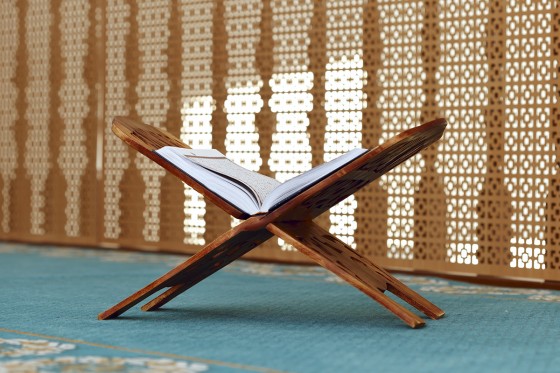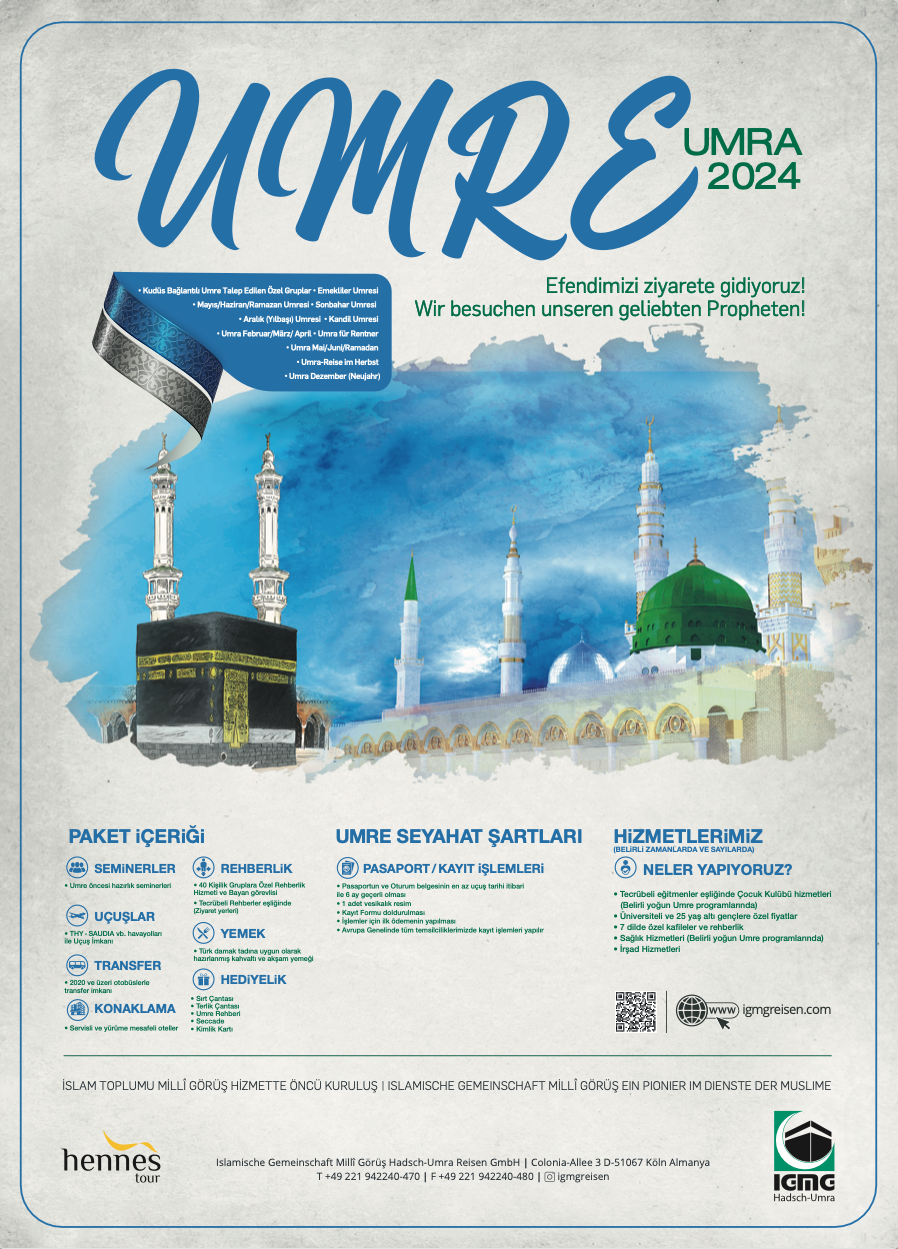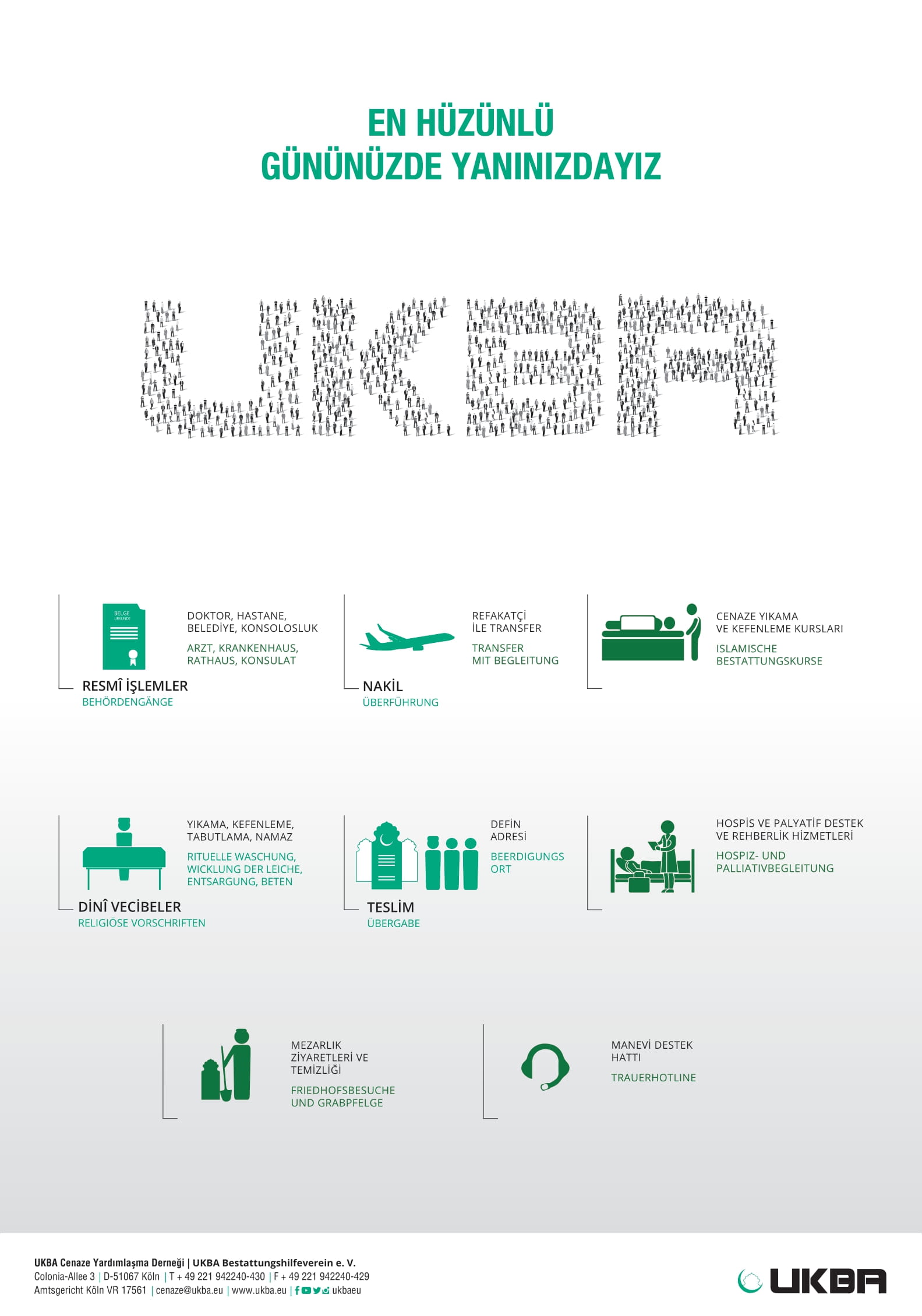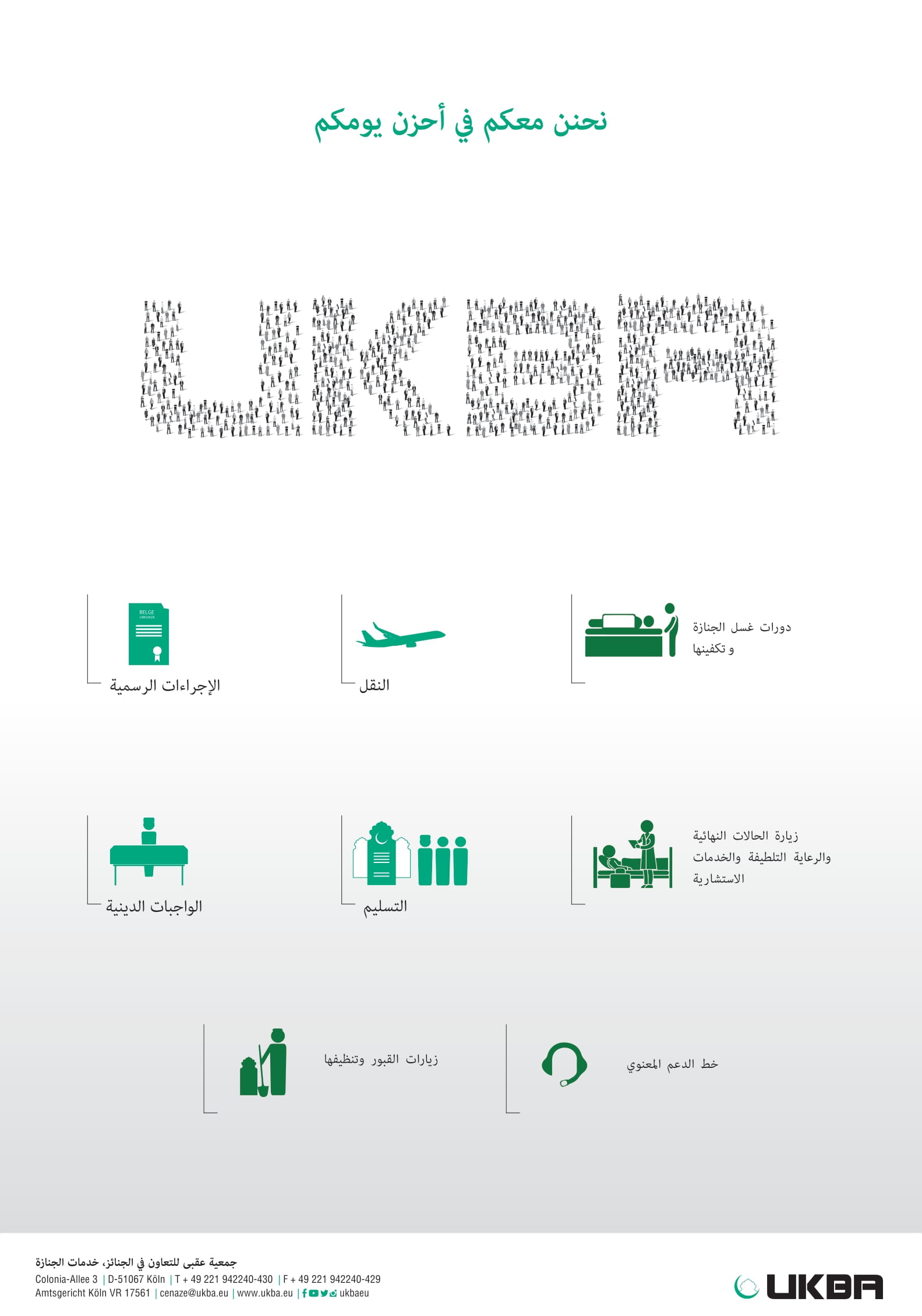Friday Khutba
Itikaf: Time for Worship and Contemplation
06. April 2023
Dear Brothers and Sisters!
We are approaching the last ten days of the holy month of Ramadan, which we spend with worship and obedience. Aisha (ra), said about the value and importance of these days: “The Messenger of Allah (saw) used to make an effort in Ramadan that is not seen in other months. In the last ten days of Ramadan, he would try harder. In the last ten days, he would revive the night and wake up his family (for the revival of the night).”[1]
Dear Brothers and Sisters!
In our authentic Islamic tradition, which is based on the Qur’an and Sunnah, there is a form of worship called Itikaf. Itikaf, as a word, means to wait in a place, to stop and to close oneself somewhere. We know that before the first revelation was revealed to the Messenger of Allah (saw), retreated to the cave of Hira and was busy contemplating. In other words, even before the first verses of the Qur’an were revealed, the Prophet (saw) needed Itikaf, that is, to be in a place alone and contemplate. Today, the first thing that comes to mind when talking about Itikaf is that a Muslim stays in a mosque for a while with the intention of worshiping. The legitimacy of I’tikaf is determined by the Qur’an and Sunnah. With the verse stating, “And do not have relations with them as long as you are staying for worship in the mosques.”[2] And Aisha (ra) mentioning that, “The Messenger of Allah used to perform I’tikaf in the last ten days of Ramadan. He continued this custom until his death. Then, after him, his wives entered i’tikaf.”[3]
Dear Jama’ah!
It is important for a person’s spiritual maturity to stay away from all kinds of lustful desires, even if they are for a certain period of time. In addition to Fard prayers, voluntary prayers are also important in this regard. An environment in which religious feelings and thoughts are experienced intensely, turning towards the Creator, gives people a deep spiritual horizon.
In this respect, I’tikaf is not a worship unique to the Islamic Ummah, but is a deep-rooted tradition practiced in various ways in almost all religions with a tradition of revelation; It is known as a sunnah that has been going on since the time of Prophet Ibrahim (as) and his son Ismail (as) in Islamic teachings. Allah (swt) mentions, “And [mention] when We made the House [i.e., the Kaʿbah] a place of return for the people and [a place of] security. And take, [O believers], from the standing place of Abraham a place of prayer. And We charged Abraham and Ishmael, [saying], “Purify My House for those who perform tawāf and those who are staying [there] for worship and those who bow and prostrate [in prayer].”[4]
Dear Brothers and Sisters!
Our religion does not order the believer to spend our lives in seclusion, to cut off contact with people, to fill our days with only certain acts of worship, and it does not even tolerate this. However, our religion recommends and encourages to be alone, to supplicate a lot, to recount, to think about our good and bad sides, to correct mistakes, and to devote oneself only to the Creator, even if once a year, especially in the last ten days of Ramadan. Being alone in today’s world is a blessing and i’tikaf is an opportunity to strengthen our spirituality. We should engage in itikaf if we have the means to and those who cannot find the opportunity should spend these days contemplating. Let’s take our Nafs into account more intensely within these times.
May Allah (swt) make us among his servants who benefit from the blessings of the month of Ramadan. Ameen.
Announcement:
The obligation of zakat is a worship that is fixed by verses in the Qur’an. Accordingly, our Allah (swt) has declared in Surah At-Tawba that zakat can be given to 8 classes. Zakat that is spent on places other than these 8 classes is not suitable for this purpose and is not considered as zakat in our religion. This situation must be taken into account by those who pay zakat. At the same time, when giving zakat, it should be stated that it is zakat.
[1] Buhari, Fadlü leyleti’l-kadr, 5
[2] Surah Al-Baqarah 2:187
[3] Buhârî, “İʿtikâf”, 1; Müslim, “İʿtikâf”, 5
[4] Surah Al-Baqarah 2:125





















